Paying off old debts can be very challenging. Cashfloat deals carefully with the topic to help you tackle your old debt properly.


- Debt over 6 years old may become statute barred and not require repayment
- If your creditor no longer has the original credit agreement, you may not need to pay up.
Cashfloat is a responsible short term loan lender, providing customers in the UK with a solution to short term financial problems.
As we like to help everyone, we have published this guide to debt management plans, which is designed to help people who are in long term financial difficulty as well. This article deals with the subject of whether or not people need to pay off old debts..
Can Old Debt Disappear?
This Cashfloat guide deals with debt management plans (DMPs). Many people use debt management plans to tackle debt problems and many of these people will make payments towards their debts for a number of years. Often, people start to wonder what happens to old debts that are included in their debt management plan and whether or not they actually need to continue paying them. As well as people who are making payments towards debts on a DMP, there are other people who have old debts that they have not been making any payments towards.
In some situations debts become statute barred, meaning that creditors can no longer take legal action against a debtor in order to recover a debt. Effectively, this frees a person from debt. We will explain when debts become statute barred and how people should approach old debts, whether they have made payments towards them or not.
When Do Debts Become Statute Barred?
The period of time after which a debt becomes statute barred depends on the type of debt and whether you are in England, Wales or Northern Ireland or if you are in Scotland. In England, Wales and Northern Ireland most types of debt (particularly common debts such as credit card debts, personal loans, payday loans and catalogue debts) become statute barred six years after:
- The debtor last wrote to the creditor acknowledging that they owed the debt
- The last time the debtor made a payment towards the debt
- The earliest date the creditor was allowed to take court action in order to recover the debt (often when the debtor first missed a payment)
The same criteria apply in Scotland, however, the period of time which must elapse is generally five years.
Not all types of debt will become statute barred after this period of time. Different time periods (or no possibility of statute barring) apply to mortgage shortfalls, personal injury claims, council tax, benefit overpayments, income tax debts, VAT debts and capital gains tax debts depending on where you live in the UK.

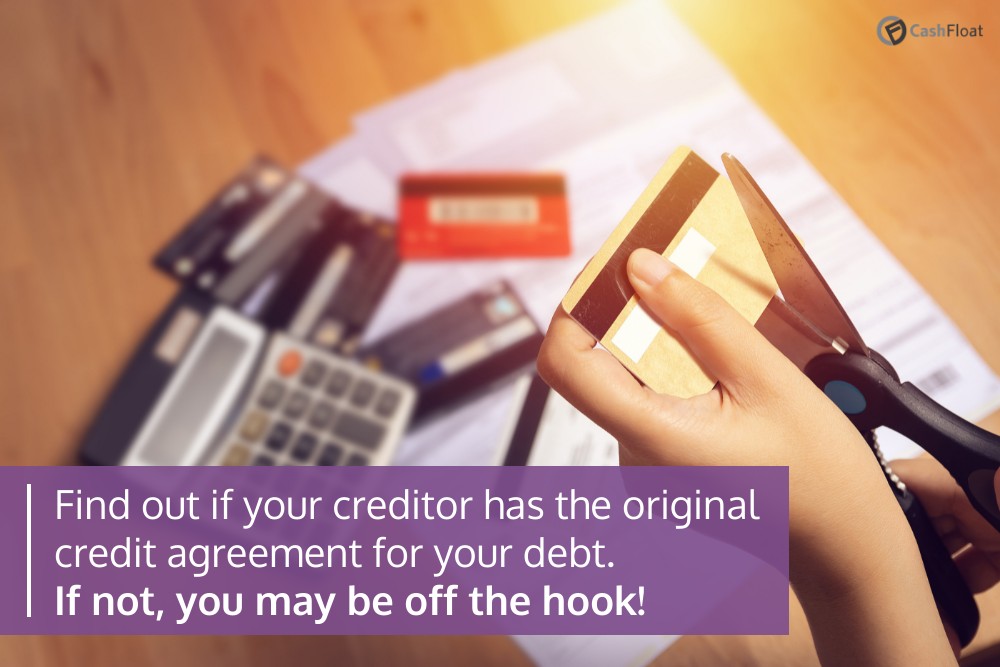
What Happens to Statute Barred Debt?
When a debt becomes statute barred it is no longer possible for a creditor to get a court judgement or an order to recover the debt. This stops the creditor from being able to do anything to recover the debt. While the debt still exists, the debtor has no obligation to pay it and the creditor cannot take legal action in order to recover it. It should be pointed out that debts in Scotland are ‘prescribed’, rather than statute barred. While the outcome is effectively the same, when a debt becomes prescribed it no longer legally exists.
If a creditor begins court action before the appropriate amount of time elapses this will prevent a debt from becoming statute barred or prescribed. They do not have to win the court case before the time period elapses, they just have to start it.
If You Have Made Payments Under a Debt Management Plan
For people who have been making payments towards their debts under a debt management plan (or have been making payments in any other way) their debts will not become statute barred because they have been making those payments. It will not be possible for statute barring or prescribing to occur until the appropriate amount of time (usually six years) until after the date of the last payment.
While the debt may have disappeared from a person’s credit report, usually if it was defaulted over six years ago, and while creditors may not have made any contact for a long period of time, the debt still exists and if you cease to make payments towards it, your creditors will be able to take legal action in order to recover the debt. These people will usually either need to continue making payments until the debt is cleared or, alternatively, they may be able to reach a settlement agreement with their creditors. Further on on this page we will explain how settlement agreements work and what people should consider if they plan to continue making payments under a debt management plan.

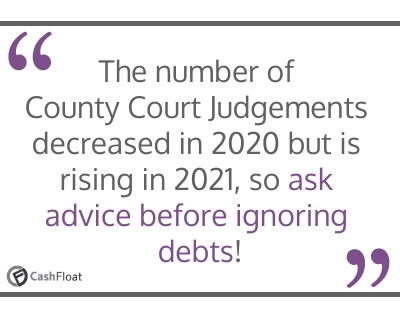
An Exception…
It should be pointed out that, while it is the case that people who have made payments towards their debts will not see their debts statute barred, there is another possible situation in which their creditor may not be able to take legal action against them in order to recover an old debt.
For many types of consumer credit, such as credit cards, personal loans and payday loans, if the creditor does not have the original credit agreement they will not be able to take you to court in order to recover the debt. While this is not the same as when a debt becomes statute barred, it is another situation in which creditors can be prevented from taking debtors to court over old debts. This is particularly likely with debts which were incurred before 2007 or where debts have been passed onto a debt collection agency.
If you think this might be the case, you can find out if your creditor has a copy of the original credit agreement by requesting them to send you a copy. If they do not, they will not be able to take legal action against you in order to recover the debt. It is worth noting, though, that you should seek independent advice before you decide to not pay a debt of this kind and make sure that you are absolutely certain that this is the right thing to do.

If You Have Not Made Payments Under a Debt Management Plan
If you have old debts which you have not been making payments towards either under a debt management plan or in any other way, then it is possible that your debt will have already become statute barred or could do so after more time elapses. However, you will need to be absolutely certain that the debt is statute barred before you ignore it.
Remember that if you have acknowledged the debt to your creditor, this will also prevent the debt from becoming statute barred. If you have not made any payments or acknowledged the debt to your creditor, then they will usually have six years (five in Scotland) from when they were first able to take legal action against you to do so. Remember that this time period is different for different debts, depending where you are in the UK.
The Risk of County Court Judgement
While it may be tempting to ignore a debt which you believe may have already or will soon become statute barred, this is a risky thing to do. If a creditor does take legal action against you, you could receive a county court judgement (CCJ) or a decree, which will have a detrimental impact on your credit score.
While having a debt statute barred will free you from debt, there are many pitfalls to ignoring a debt which is close to becoming statute barred or one that you are not sure is statute barred. For example, if a creditor is unable to contact you at a new address, they may attempt to contact you at an old one to inform you that they are starting legal proceedings. This may mean that you are unaware that they are taking you to court and you could receive a CCJ or decree without knowing that proceedings were ongoing. On top of this, it is not uncommon for creditors to wait until very late before they begin legal proceedings. Often debtors who have not heard from their creditors for many years will hear from them very close to the time that a debt becomes statute barred.
It is best to seek independent advice if you believe that a debt of yours may be statute barred or could be close to becoming so. It is important to be careful in this situation and make sure that you are following the right course of action. In this situation, it is best to seek independent debt advice, from a charity such as National Debtline or Stepchange. For more information about being in this situation, look at this article on DebtCamel.

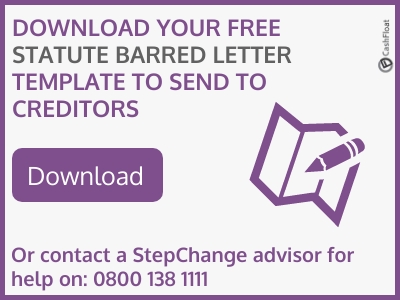
Continuing a Debt Management Plan or Making a Settlement Offer
As we mentioned earlier, anyone who has been making payments towards their debts under a debt management plan or in any other way will not have their debts statute barred. Normally, these people should either continue with their debt management plan until their debt is cleared or make a settlement offer.
Making a Settlement Offer
Under a full and final settlement offer you will offer to make one final reduced payment to a creditor, after which they will agree to no longer pursue you for a debt. The longer you have been making small payments to a creditor, the more likely they are to accept a relatively low offer. As such, many people who have old debts which they have been paying off under a debt management plan over a number of years will more easily be able to make a full and final settlement offer to their creditors.
In order to make an offer you will need a lump sum of cash available. You can either make an offer yourself or, in some instances, a creditor will write to a debtor suggesting that you reach an agreement. If you find yourself with some spare cash, it may be a good idea to write to your creditors to make an offer. If you can agree to a settlement you will have paid off your old debt and it will no longer show on your credit record.
Things to Consider Before Making an Offer
It is a good idea to run a plan to make a full and final settlement offer past your debt management plan provider before you do so. When it comes to the amount that you should offer, this will depend on your circumstances and the amount of money that you owe. A discussion with your DMP provider should help you to get a clearer idea of how much you should offer to your creditors.
It is important that your creditor confirms to you, in writing, that your offer will be accepted as a full and final settlement and that they will also not sell any outstanding debt to anyone else. On top of this, it is also important that your creditors agree to change your credit reference file information to show that the balance has been paid and also to display the date on which this was done.
Continuing Your Debt Management Plan
If you do not have a lump sum of cash available, and there have been no changes to your circumstances, then it will usually be necessary to continue making payments towards the debt in your debt management plan. If you believe there could be another reason that you no longer have to continue paying the debt, then make sure that you speak to your DMP provider or another debt advisor before you decide to change anything that you are doing. Remember that you could end up with a CCJ if you decide to ignore a debt of this kind.
Should You Change Your Debt Management Plan Provider?
Some people may benefit from changing their debt management plan provider. This is particularly likely to be the case if your DMP is provided by a debt management company, rather than a debt charity.
Possible Benefits of Changing DMP Provider
There are a number of reasons why you may wish to change from your current provider to a new one.
- One of the main reasons is that if you are with a debt management company, rather than a charity, they will most likely be charging a fee for the service that they provide. While you have been paying towards your debt management plan, a percentage of your monthly payment will have been deducted for fees and this will have made your debt take much longer to clear. The same service can be provided for free by a debt charity! It is always much better to go with a free debt charity than with a fee charging company and it is always possible to switch.
- Some debt management companies also do not provide an adequate backup service in terms of the advice and counselling that they offer. This can be a very helpful aid, when people are dealing with difficult financial problems. One debt charity which is particularly good at providing counselling and personal support to people who are struggling with debt is Christians Against Poverty. They can also act as a debt management plan provider.
Changing debt management plan providers can bring huge benefits to people. However, it is important to note that doing so is not always straightforward and it is wise to make sure that you go about it in the right way. An important point to note is that you are not tied into your current debt management plan because DMPs are not a legally binding agreement.
Contracts are not Legally Binding
Many people are unaware that they are allowed to change the organisation that is administering their debt management plan. The truth is that although you may have signed an agreement with your provider, it is not legally binding. The debt management plan is an informal agreement between you and your creditors and as such you can cancel it at any time or change to another DMP provider if you wish to do so.
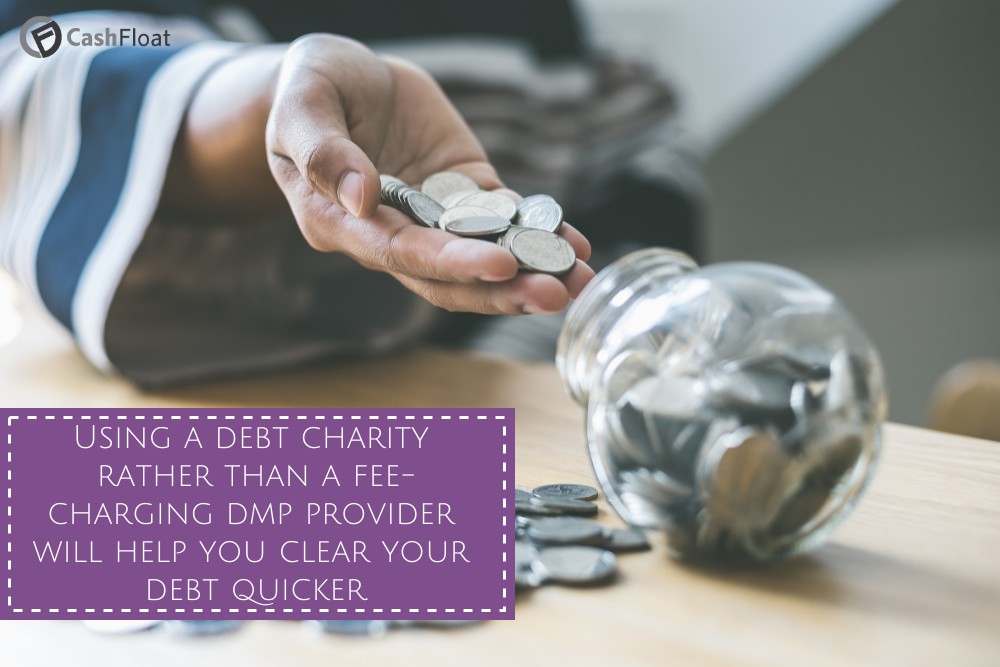
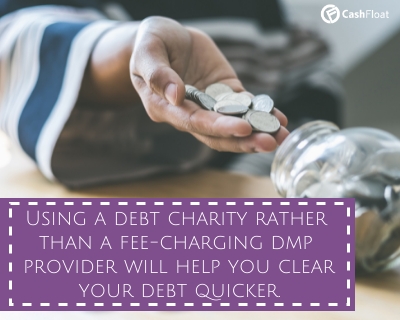
What Happens When You Start a New Debt Management Plan
Before you change your debt management plan provider, if you have not already done so, look up the free debt management services provided in the UK. Debt charities and certain other organisations, such as PayPlan, do not charge a fee for providing a DMP. This will help you to reduce your debt quicker.
If you do decide to change your DMP provider it is important to avoid there being delays in receiving your paperwork from your old provider or delays in payments being given to your creditors. Also, it is possible that your creditors will reject a plan set up by your new DMP provider. It is worth doing your research and discussing your situation with a debt advisor before you decide to switch over. One common way that people handle a switch of DMP providers is by making payments directly to their creditors while the switch is taking place.
Companies That Offer to Cancel All of Your Debts
When you are looking for DMP providers, be wary of debt management companies that promise to cancel all of your debt (or a large part of it). These companies are often being misleading or completely untruthful.
It may be true that debt solutions, such as individual voluntary arrangements (IVAs), debt relief orders or bankruptcy can wipe all or part of your debts. Many of these companies promote these solutions. However, there are serious consequences to using one of these debt solutions and it is often better to pay debts off with a debt management plan. Be wary of any fee charging debt management company which encourages you to use one of these debt solutions. If you have been paying into a DMP for a long period of time, it will be an even worse idea to use one of these solutions, because all of the effort and money you will have put into your DMP so far will have been wasted.
In Summary…
The subject of whether old debts actually need to be paid off is complicated and it can be hard to tell whether or not your debts are already statute barred or might become so. While it is very helpful when debts don’t actually need to be paid and while it is tempting to do everything you can to avoid paying them, it is a good idea to approach old debts with caution. Failure to pay an old debt could result in you receiving a CCJ, which would damage your credit rating and this could come at the point where you are close to clearing your debts. If you are not sure whether you should continue paying an old debt or not, it is always a good idea to speak to a debt charity for advice.

Chapter 17:
Why you Shouldn’t Manage your Debt with High Cost Loans

Chapter 19:
Everyday Living With A Debt Management Plan

